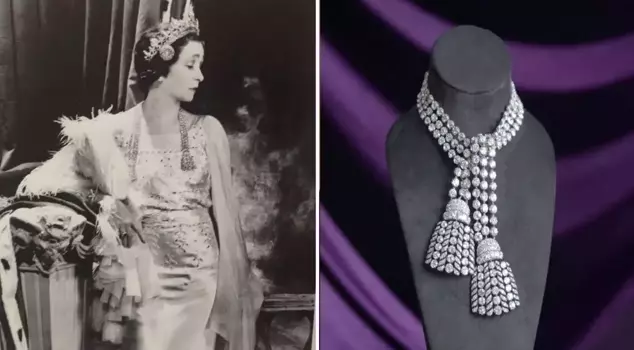
14.11.2024 19:50
The necklace at the center of the '1785 diamond necklace affair,' which fueled the French Revolution, was sold at auction for $4.81 million.
"Let them eat cake," a phrase that made Queen Marie Antoinette of France famous worldwide, saw her diamond necklace sold for $4.81 million.
According to a statement from Sotheby's auction house, the diamond necklace of Antoinette was put up for sale by an unnamed woman at an auction held in Geneva, Switzerland. The piece, which is from the Georgian era and contains 300 carats of diamonds, was sold for a price above expectations after a long bidding war, having been offered by a special Asian collector.
The necklace had previously been valued at $2,246,000. Sotheby's Jewelry Specialist Andres White Correal stated after the necklace was sold last night, "It was an exciting evening. It is clear that there is a special market for historical jewels with magnificent provenance. People are not just buying the object, but all the history attached to it as well."
It was noted that the jewelry was at the center of the scandal known as the "1785 diamond necklace affair," where a woman named Jeanne de la Motte, in dire straits, acted like Antoinette to purchase the necklace without payment.
THE DIAMOND NECKLACE AFFAIR
King Louis XV ordered an extravagant diamond necklace worth approximately 16.45 million Euros for his mistress, Madame du Barry. The designers of the necklace, Parisian jewelers Charles Auguste Böhmer and Paul Bassenge, were unable to sell the necklace due to the death of King Louis and fell into significant debt.
In 1784, a woman named Jeanne de La Motte devised a plan to convince her lover, Cardinal de Rohan, that Marie Antoinette secretly wanted the necklace, and tricked him into obtaining it. La Motte, who seized the necklace, sent the diamonds, which she had broken apart, to London to be sold on the black market. Unable to receive payment, Böhmer and Bassenge approached the queen directly to collect their debts.
After Marie Antoinette, who was unaware of the situation, learned of it, La Motte was imprisoned, Cardinal de Rohan was released, and the queen was exonerated. The scandal increased public anger towards the monarchy and fueled the French Revolution.